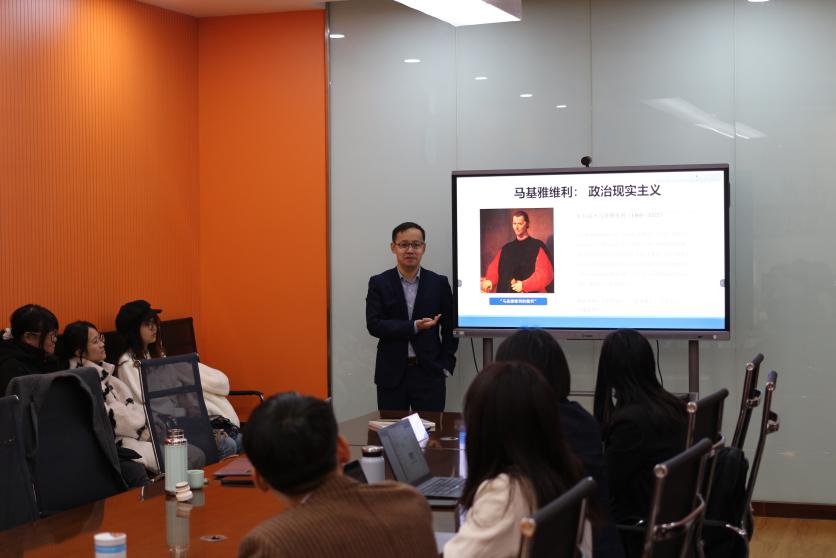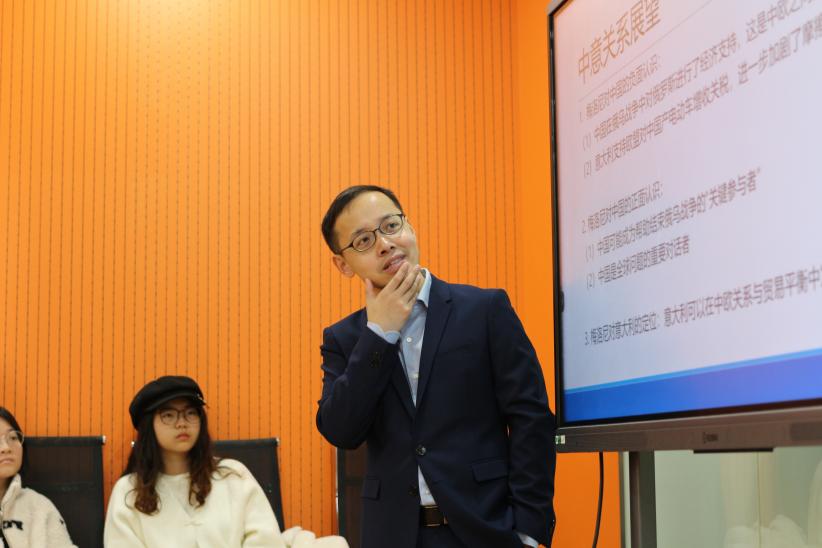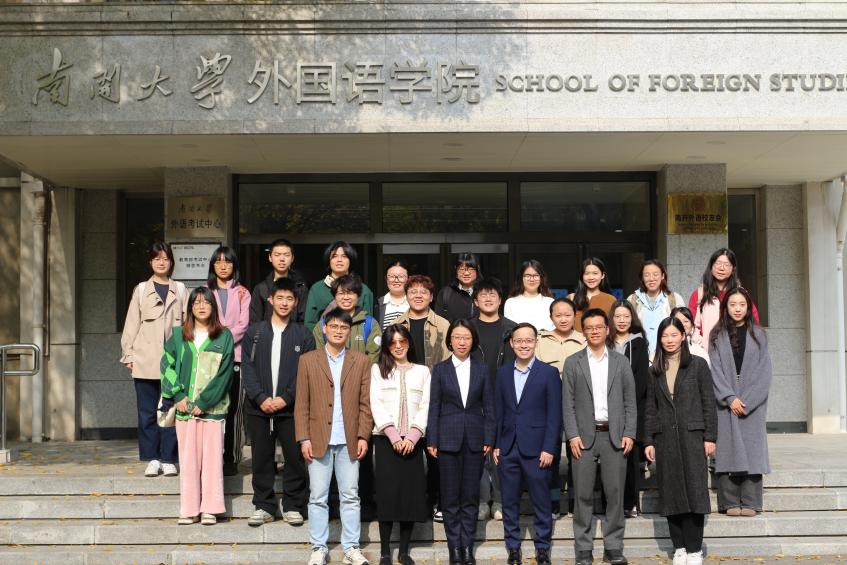On November 1st, Associate Professor Zhong Zhun from the Department of History at the Institute for Advanced Studies in Humanities and Social Sciences, Chongqing University, delivered an academic lecture titled “The Forerunner of Western Countries: Insights from Italian Politics and Diplomacy” at the School of Foreign Studies (SFS) at Nankai University. The lecture emphasized the importance of regional and country-specific studies in the context of globalization, providing an in-depth analysis of the characteristics of Italian politics and diplomacy, as well as the future direction of China-Italy relations. Professor Yang Lin, Director of the Italian Department, Associate Professor Peng Qian, along with faculty members Ni Yang, Shi Dou, Ruan Yufeng, and students from SFS, attended the lecture.

Zhong Zhun holds doctoral degrees in political science from LUISS Guido Carli University in Italy and the Université Libre de Bruxelles (ULB) in Belgium. His research interests include party diplomacy, regional and country-specific studies (particularly focusing on Italy and Europe), and international railway construction. Zhong currently serves in multiple academic roles, such as Executive Director of the National Alliance for the Training of Talents in Country and Regional Studies, Council Member of the European Politics Research Branch of the Chinese Association for European Studies, editorial board member for the Blue Book of Italy by the Social Sciences Academic Press, and an expert reviewer for state-funded study abroad programs.
In his lecture, Zhong provided a thorough explanation of the origins and scope of “regional and country-specific studies.” He emphasized that this interdisciplinary field integrates theories and methods from history, philosophy, linguistics, and other disciplines to comprehensively study the historical, cultural, political, economic, and social systems of specific countries and regions, as well as their relations with China. Zhong advised students majoring in foreign languages to leverage their language skills to access primary resources but also stressed the importance of applying theoretical methods from other disciplines to build robust, practice-tested academic frameworks.

Zhong further discussed the distinctive features and lessons of Italian politics and diplomacy. He noted that frequent changes in leadership and a rapid political “metabolism” make Italy a bellwether for political developments in the West, often signaling future trends earlier than many Anglo-American nations. He analyzed the historical evolution of Italian diplomacy, highlighting its “pendulum” pattern since the 1990s, driven by alternating governments from center-left and center-right coalitions. Zhong also evaluated Italian populism, remarking that populist parties in Italy came into power earlier than in other European countries, influencing shifts in Western political thought, thus making it essential to pay close attention to Italy’s party politics.
Finally, Zhong analyzed the developmental trends of China-Italy relations, pointing out Italy’s political flexibility, which positions the country as a critical balancing actor in China-Europe and China-US relationships. During the Q&A session, faculty and students from the Italian Department actively engaged with Zhong, posing questions about regional studies, “populism”, and international communication. Zhong provided detailed responses, enriching the attendees’ understanding of regional and country-specific studies, deepening their insights into Italian diplomacy and China-Italy relations, and inspiring greater academic interest among the students.




